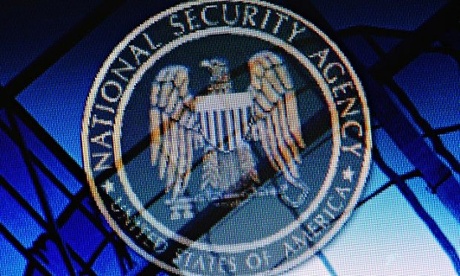Chairman of key House committee agrees to proceed with NSA reform bill
• Judiciary committee chair gives new life to USA Freedom Act
• Bill to overhaul spy agency had been stalled by months of delay
• Bill to overhaul spy agency had been stalled by months of delay
- theguardian.com, Monday 5 May 2014 13.58 EDT

The
chairman of a key committee in the House of Representatives agreed to
move on a major surveillance overhaul on Monday, after months of delay.
The
decision, by the Republican chairman of the House judiciary committee,
Bob Goodlatte of Virginia, breathes new life back into the USA Freedom
Act, a legislative fix favoured by privacy advocates to prevent the US
government from collecting domestic data in bulk.
The judiciary
committee is expected to take action on an amendment encapsulating the
provisions of the USA Freedom Act on Wednesday at 1pm. Congressional
aides expected it to pass the committee with bipartisan support, setting
up a fight on the House floor.
Goodlatte, who had been hesitant
to endorse the bill, written by former committee chairman James
Sensenbrenner, will now vote for it personally.
Goodlatte’s
decision comes despite pressure by the House Republican leadership,
which preferred an alternative bill, written by the House intelligence
committee leadership, that would permit the government to acquire
Americans’ data without a specific prior judicial order for it.
Additional pressure came from a desire on all sides to avoid
surveillance-related amendments to unrelated, critical bills slated for floor consideration later this month.
An
attempt by the intelligence committee and the House leadership to
circumvent Goodlatte’s committee and pass the rival bill is said by
observers to have galvanised Goodlatte’s decision to move forward on the
USA Freedom Act. Internal committee negotiations on modifying the USA
Freedom Act for passage intensified after the House intelligence committee unveiled its bill in March.
The
Obama administration has yet to take a public position on the House
judiciary bill or the House intelligence bill, although President Barack
Obama endorsed getting the National Security Agency out of the business of bulk domestic phone records collection in March.
“This will start to look like a reasonable path forward for surveillance reform,” said a congressional aide.
Barely
an hour after the judiciary committee announced its move on the USA
Freedom Act, the House intelligence committee announced that it will
mark up its alternative bill, the Fisa Transparency and Modernization
Act, on Thursday.
"This bill directly addresses the privacy
concerns many Americans have expressed over bulk collection. The bill
ends bulk collection of telephone metadata and increases transparency
while maintaining the tools our government needs to keep Americans and
our allies safe. We believe this bill responds to the concerns many
members of Congress have expressed and can be the compromise vehicle to
reform Fisa while preserving important counterterrorism capabilities,"
said the intelligence committee leaders, Republican Mike Rogers of
Michigan and Democrat Dutch Ruppersberger of Maryland, in a joint
statement on Monday.
Read More here
.....
A House committee has voted unanimously to rein in the NSA

Rep. Bob Goodlatte (R-Va.). (Bill O'Leary / The Washington Post)
A
key House committee has approved a package of NSA reforms that would
end the spy agency's bulk collection of Americans' phone records, nearly
a year after former NSA contractor Edward Snowden disclosed the
program's existence.
The House Judiciary Committee voted 32-0
Wednesday to rein in the NSA with the USA FREEDOM Act, a measure that
places new requirements on the government when it comes to gathering,
targeting and searching telephone metadata for intelligence purposes.
In
addition to prohibiting the NSA from engaging in what the bill's
sponsors have called "dragnet surveillance," the bill would also require
authorities to get permission from the secret Foreign Intelligence
Surveillance Court on a case-by-case basis. It would establish a panel
of privacy experts and other officials to serve as a public advocate at
the court. And it would also give businesses more latitude to tell the
public about requests it receives from the government for user data.
.....
A House committee has voted unanimously to rein in the NSA

Rep. Bob Goodlatte (R-Va.). (Bill O'Leary / The Washington Post)
The House Judiciary Committee voted 32-0 Wednesday to rein in the NSA with the USA FREEDOM Act, a measure that places new requirements on the government when it comes to gathering, targeting and searching telephone metadata for intelligence purposes.
In addition to prohibiting the NSA from engaging in what the bill's sponsors have called "dragnet surveillance," the bill would also require authorities to get permission from the secret Foreign Intelligence Surveillance Court on a case-by-case basis. It would establish a panel of privacy experts and other officials to serve as a public advocate at the court. And it would also give businesses more latitude to tell the public about requests it receives from the government for user data.
Related articles







No comments:
Post a Comment
Hello and thank you for visiting my blog. Please share your thoughts and leave a comment :)